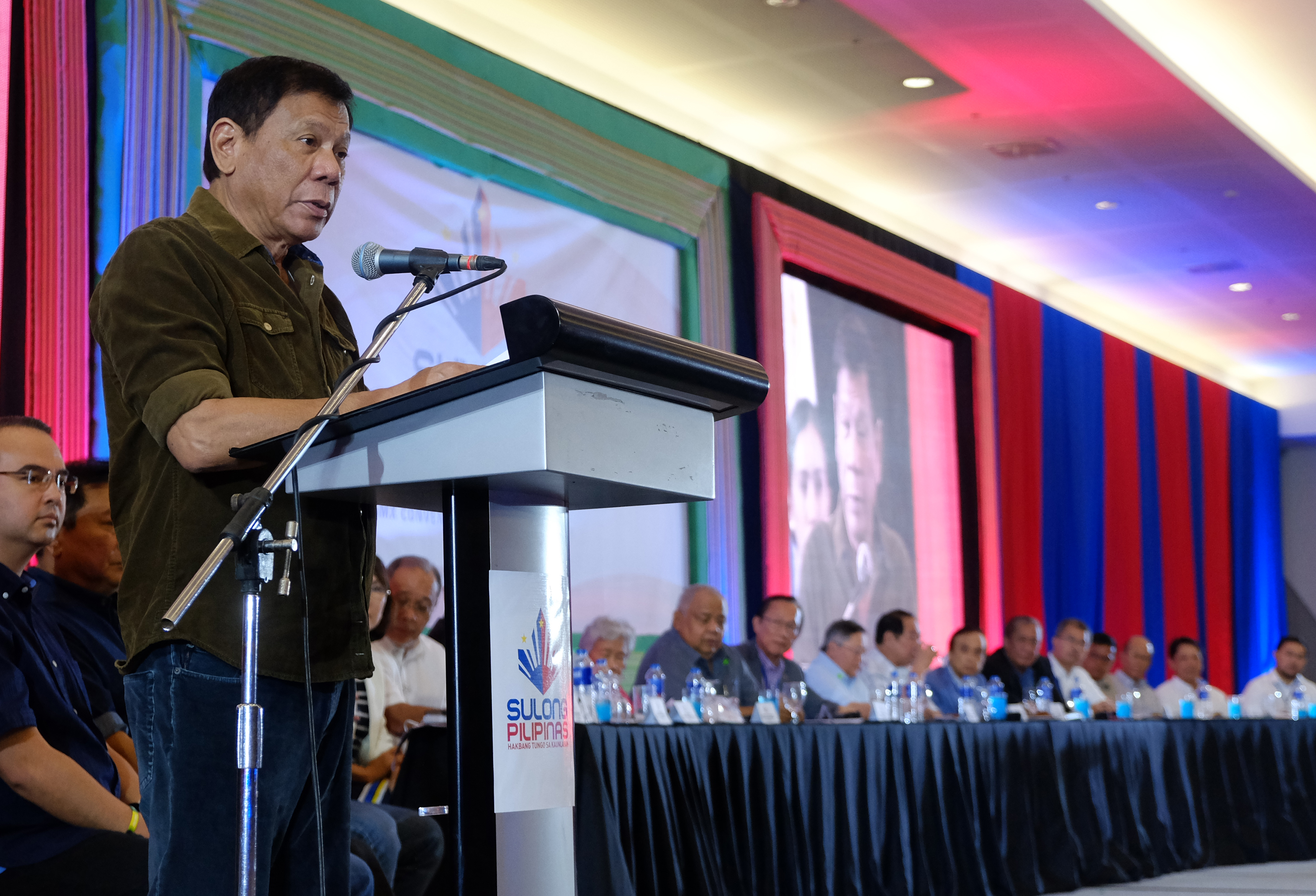
Duterte will begin his six-year term on June 30. / AFP PHOTO /
MANILA, Philippines (AFP) — Philippine president-elect Rodrigo Duterte says he could be open to peace talks with the Islamic militant group Abu Sayyaf, which recently beheaded two foreign hostages and kidnapped seven more.
“The Abu Sayyaf is not my enemy. I know it is connected with the issue of Mindanao,” Duterte told supporters in a speech in the central city of Cebu late Saturday, referring to the rebellion-torn south of the country.
“That is why I want to ask them: are they willing to talk or do we just fight it out?” said the firebrand politician, who campaigned on promises to get tough on crime and who takes office on June 30.
The incoming leader himself hails from Mindanao, where a decades-long Muslim separatist insurgency has claimed more than 100,000 lives.
While previous administrations have opened talks with major Muslim separatist groups in the South, they have deployed troops to hunt down the Abu Sayyaf.
The Abu Sayyaf is a loose network of a few hundred Islamic militants formed in the 1990s with seed money from Osama bin Laden’s Al-Qaeda network that has earned millions of dollars from kidnappings-for-ransom.
Although its leaders have pledged allegiance to Islamic State, analysts say they are mainly focused on lucrative kidnappings.
Duterte said on Friday that he and his aides were responsible for successfully negotiating the release of one of the group’s hostages, a Filipina who had been kidnapped along with several foreigners in September.
The Abu Sayyaf beheaded two Canadian hostages who were among that group. Thee fourth hostage, a Norwegian, is still being held.
Last week seven Indonesian seamen were abducted in waters off the southern Philippines, prompting Jakarta to ban any Indonesian-flagged vessel from sailing to the Philippines.
The Philippine military said Sunday it believes the Indonesians are being held in the remote Sulu archipelago, the main Abu Sayyaf stronghold.
Earlier this year Abu Sayyaf kidnapped four Malaysian seamen and 14 Indonesian sailors. They were freed several months later.
The Philippines, Malaysia and Indonesia have agreed to consider joint measures aimed at curbing the seaborne kidnappings.
These include sea and air patrols over a designated transit corridor where vessels could travel between the countries.
© 1994-2016 Agence France-Presse







